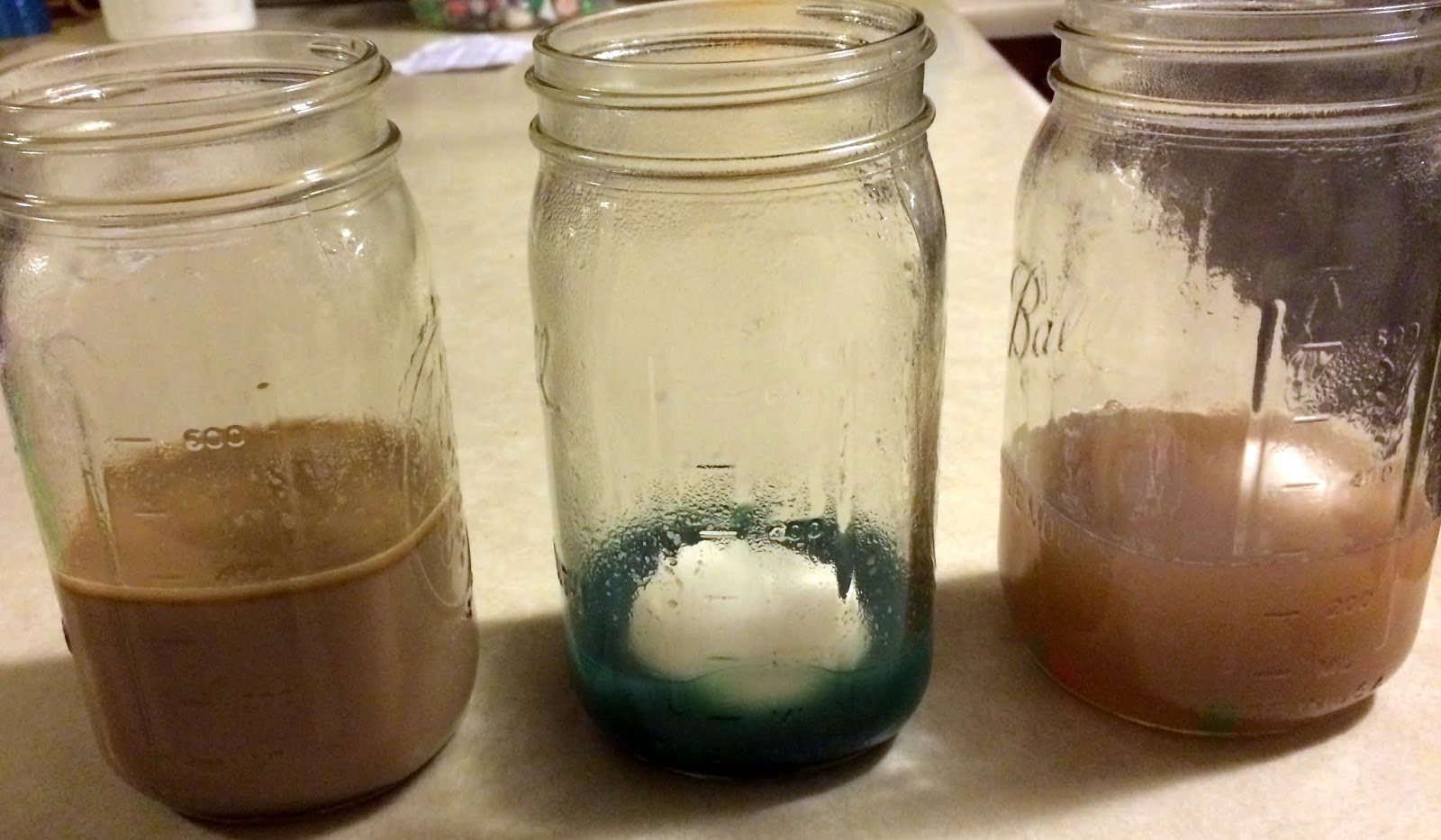We had the great privilege of participating in a homeschool Science Fair last month. Our Catholic homeschool group organized the fair, which included children ages six through fourteen. It was a great opportunity for all of the students to learn about and work through the scientific method. They got valuable experience by doing ongoing research, organizing their results, and then presenting it to their peers and judges.
 |
| We spent several evenings working on our experiments as a family. |
 |
| Having things like this on your counter for a week.... just part of the homeschooling adventure! |
When we started this process, Adam was adamant (ha ha) that his experiment somehow involve candy. He ended up exploring the question, "Which kind of candy is worst for your teeth?" He hypothesized that sour candy would be worst. We learned about acids and bases, selected three types of candy to test, made solutions with the candy, and soaked eggs in the solutions for a week. (Eggshells are similar to tooth enamel.) The results were interesting. Chocolate didn't seem to discolor the eggshell, but it did leech through and discolor the yolk. Fruit snacks turned the shell incredibly hard and protected the yolk, but the shell was quite discolored. The sour candy made the shell very brittle and greatly discolored the yolk.
Ray decided to test whether storing batteries in the refrigerator makes them last longer and function better. We bought a large pack of double A batteries and refrigerated half of them for one month. Then we got two battery-operated candles and powered one with a cold battery and one with a room-temperature battery. Well, we learned that those candles use very little energy! Those candles burned for 70+ days.... and the science fair took place 52 days after we started the experiment. Fortunately, we had designed and run another test as well. We used cold and warm batteries (alternately) to power a toy train. We flipped it on its side and let it run the batteries completely out. Interestingly, in each of three warm/cold trials, the cold batteries ran the train longer. So Ray's hypothesis was confirmed in his trials. The cold batteries functioned longer.
 |
| Talking with the judges |
 |
| Ray loved talking with the judges. He even asked THEM questions. |
 |
| Our esteemed scientists! |
This was a great experience for us!









No comments:
Post a Comment